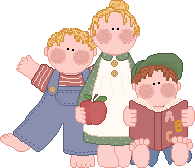Poetry?
Poetry (from the Latin poeta, a poet) is a form of literary art in which language is used for itsaesthetic and evocative qualities in addition to, or in lieu of, its apparent meaning. Poetry may be written independently, as discrete poems, or may occur in conjunction with other arts, as in poetic drama, hymns, lyrics, or prose poetry. It is published in dedicated magazines (the longest established being Poetry and Oxford Poetry), individual collections and wider anthologies.
Why try?
Egg Yolk
The Incredible, Edible Egg Yolk. We write not to impress, just to express.
Thursday, September 23, 2010
A Task
We need to make poems about the topics that Mr. Aladeza stated a while ago.
About:
- Myself
- II-St. Bernard
- My adviser
- My school
- My family
- My Best friend
- My hobby
- My PBA, my Hero
- Jesus
Wednesday, September 22, 2010
Why Read?
Why Your Child Should Read for 20 minutes Every Day

"WHY CAN'T I SKIP MY 20 MINUTES OF READING TONIGHT?"

LET'S FIGURE IT OUT --- MATHEMATICALLY!
Student A reads 20 minutes five nights of every week;
Student B reads only 4 minutes a night...or not at all!
Step 1: Multiply minutes a night x 5 times each week.
Student A reads 20 min. x 5 times a week = 100 mins./week
Student B reads 4 minutes x 5 times a week = 20 minutes
Step 2: Multiply minutes a week x 4 weeks each month.
Student A reads 400 minutes a month.
Student B reads 80 minutes a month.
Step 3: Multiply minutes a month x 9 months/school year
Student A reads 3600 min. in a school year.
Student B reads 720 min. in a school year.
Student A practices reading the equivalent of ten whole school days a year.
Student B gets the equivalent of only two school days of reading practice.

LET'S FIGURE IT OUT --- MATHEMATICALLY!
Student A reads 20 minutes five nights of every week;
Student B reads only 4 minutes a night...or not at all!
Step 1: Multiply minutes a night x 5 times each week.
Student A reads 20 min. x 5 times a week = 100 mins./week
Student B reads 4 minutes x 5 times a week = 20 minutes
Step 2: Multiply minutes a week x 4 weeks each month.
Student A reads 400 minutes a month.
Student B reads 80 minutes a month.
Step 3: Multiply minutes a month x 9 months/school year
Student A reads 3600 min. in a school year.
Student B reads 720 min. in a school year.
Student A practices reading the equivalent of ten whole school days a year.
Student B gets the equivalent of only two school days of reading practice.
 By the end of 6th grade if Student A and Student B maintain
By the end of 6th grade if Student A and Student B maintainthese same reading habits,
Student A will have read the equivalent of 60 whole school days
Student B will have read the equivalent of only 12 school days.
One would expect the gap of information retained will have widened considerably and so, undoubtedly, will school performance. How do you think Student B will feel about him/herself as a student?
Some questions to ponder:
Which student would you expect to read better?
Which student would you expect to know more?
Which student would you expect to write better?
Which student would you expect to have a better vocabulary?
Which student would you expect to be more successful in school....and in life?

WHY READ 30 MINUTES A DAY?
*If daily reading begins in infancy, by the time the child is five years old, he or she has been fed roughly 900 hours of brain food!
*Reduce that experience to just 30 minutes a week, and the child's hungry mind lose 770 hours of nursery rhymes, fairy tales, and stories.
*A kindergarten student who has not been read aloud to could enter school with less than 60 hours of literacy nutrition. No teacher, no matter how talented, can make up for those lost hours of mental nourishment.
*Therefore...30 minutes daily = 900 hours
30 minutes weekly = 130 hours
Less than 30 minutes weekly = 60 hours
 Guess you now understand why reading daily is so very important. Why not have family night reading? It is great to just shut off the television for 20-30 minutes and read... and share.
Guess you now understand why reading daily is so very important. Why not have family night reading? It is great to just shut off the television for 20-30 minutes and read... and share. (Source: U.S. Dept. of Education, America Reads Challenge. (1999) "Start Early, Finish Strong: How to Help Every Child Become a Reader." Washington, D.C.
(Source: U.S. Dept. of Education, America Reads Challenge. (1999) "Start Early, Finish Strong: How to Help Every Child Become a Reader." Washington, D.C.Why write?
Why Write?

For thousands of years human beings have used marks, symbols, drawings and signs to communicate with one another. In order to share knowledge, we need to be able to store information and pass it on to future generations. Memory is our first resource, but, over the centuries, we have developed many other ways to store and transmit information.
There are many different ways of writing. These pages will allow you to explore how writing can incorporate sight, sound, touch and gesture. You will also see the ways in which cultural, social, historical and personal circumstances influence the way we write and the scripts we create.
http://www.bl.uk/learning/artimages/why/whywrite.html
http://www.bl.uk/learning/artimages/why/whywrite.html
Meet the Members!
THE CEREBRUM
- Angela Pineda
- Justine Servidad
- Camille del Rosario
- Kimberlly Pedia
Elective Teacher: Mr. Edgar P. Aladeza
Bienvenida!
I am familiar with BLOGS and how to make a blog. I have my own blogspot, and this one is for our Elective.
We're late for making this, because tomorrow is our 2nd MQT. Good luck to all Sto. Niñans!
Other posts will follow. Ciao!
We're late for making this, because tomorrow is our 2nd MQT. Good luck to all Sto. Niñans!
Other posts will follow. Ciao!
Subscribe to:
Posts (Atom)






